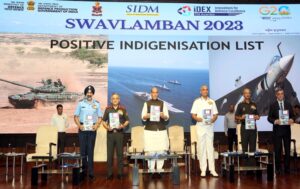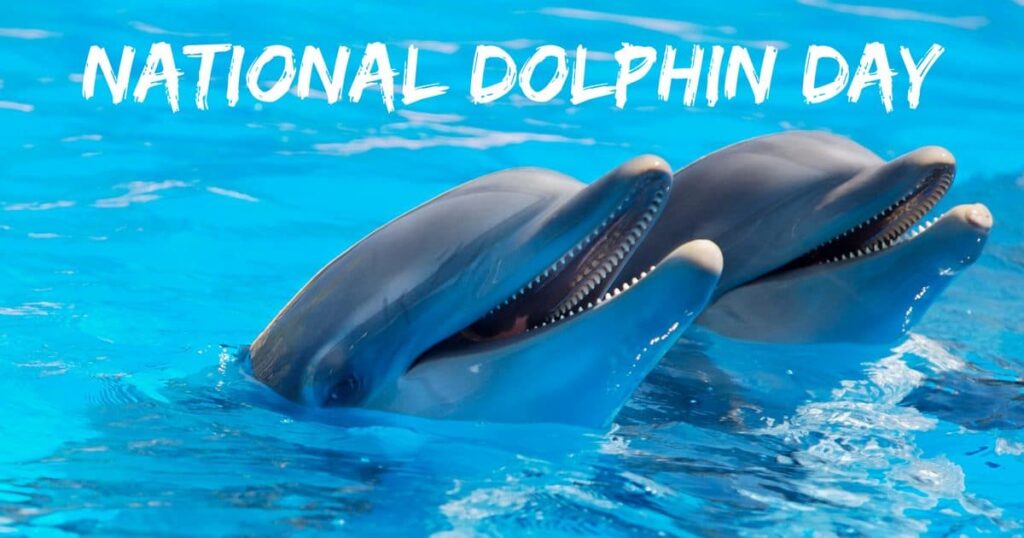Daily News Analysis- 06/10/2023
Raksha Mantri Rajnath Singh launches Navy’s updated indigenous programme Swavalamban 2.0
News: Today saw the Navy’s upgraded indigenous initiative, Swavalamban 2.0, introduced by Raksha Mantri Rajnath Singh. During the ‘Swavlamban’ seminar organized by the Indian Navy’s Naval Innovation and Indigenization Organisation (NIIO) in New Delhi, Mr. Rajnath Singh stated that since the Modi government took office, self-reliance has been the top priority.
- According to him, every effort is being made by the government to ensure India’s defense sector is self-sufficient. The government’s policies are the reason India is currently going forward with research and development in mission mode.
- The fifth Positive Indigenization list, which included 98 items, was also made public during the ceremony. Raksha Mantri commented on the list, stating that it represents a significant advancement in the military’s process of becoming more indigenous.
- He said that the 98 items on this list represent a significant advancement towards the defense sector’s independence. The Minister stated that the Modi Government’s efforts in the areas of infrastructure, health, education, defense, and the economy are significant and have given Indians hope.
- Speaking about the “SPRINT Challenges,” Raksha Mantri stated that the goal of the creative challenge was to encourage the Navy to use domestic products and technology.
- According to the results thus far, it is evident that the Department of Defence Production and the armed services have done a very good job in this regard, he said.
- The Defence Innovation Organisation (DIO) and the National Innovation Initiative (NIIO) are working together to introduce at least 75 new domestic technology and products into the Indian Navy as part of the ‘Azadi ka Amrit Mahotsav’.
HAL hands over twin seater variant of LCA Tejas fighter aircraft to IAF
News: In the presence of Union Minister of State for Tourism and Defence Ajay Bhat, Hindustan Aeronautics Limited, or HAL, delivered the twin-seater LCA Tejas fighter aircraft to the Indian Air Force today in Bengaluru.
- The lightweight, multi-role, all-weather LCA Tejas twin-seater aircraft is part of the 4.5 generation fleet. The aircraft, which was created in-house, features modern glass cockpit, integrated digital avionics systems, easy maneuvering, static stability, and innovative composite materials for the airframe.
- The aircraft’s entry into the Indian Air Force is a significant milestone as it adds India to the select group of only a few superpowers who have developed and deployed such a capability for their armed forces.
- Speaking at the event, he stated that the construction of the twin-seater Tejas with cutting-edge features is a historic moment that realises the motto of ‘Atma Nirbhar Bharat’. He called it a noteworthy accomplishment that demonstrates the potential of the native people.
Tejas Aircraft
- The Tejas aircraft is a lightweight, multi-role, single-engine fighter jet developed by India. Designed and manufactured by Hindustan Aeronautics Limited (HAL), it represents a significant milestone in India’s indigenous aerospace capability.
- The Tejas, with its advanced avionics and weaponry, serves as the backbone of the Indian Air Force, enhancing its combat capabilities. It features state-of-the-art technology, including a glass cockpit, fly-by-wire control system, and Beyond Visual Range (BVR) missile capabilities.
National Dolphin Day
News: Today is National Dolphin Day, an annual event that raises awareness about the need to conserve the nation’s aquatic animal, which is found in Bangladesh, India, Nepal, and the Ganges-Brahmaputra-Meghna and Karnaphuli-Sangu river systems.
- In response to requests from wildlife experts, animal enthusiasts, and environmental specialists, the National Board for Wildlife (NBWL) has designated October 5, 2022, as National Dolphin Day.
- The Gangetic Dolphin was designated a National Aquatic Animal by the Centre in 2010 , and Bihar has played a major role in the protection of the dolphins living in the Gangetic River.
- These dolphins are primarily found in the Ganga, Gandak, Kosi, and Mahananda river systems in Bihar.
- Dr. R K Sinha, a former Patna University zoology professor who earned the nickname “Dolphin Man” in India, conducted multiple studies on Gangetic dolphins, commonly known as Sauns in Bihar.
- As per Dr. Sinha, the Dolphin’s existence in a river system indicates its good health and biodiversity, just as the Tiger symbolizes the health of the forest, the Snow Leopard the health of the mountainous regions, and the Cheetah the health of the grasslands.
- Because dolphins are excellent ecological markers of a robust aquatic ecosystem, protecting them will be beneficial to both the survival of the species and those who depend on the aquatic environment for subsistence activities like fishing.
- Their total population is thought to be around 2,000, and Schedule I of the Wildlife Protection Act (1972) lists them as “highly endangered.”
- On the Day, the Zoological Survey of India is hosting a number of events.
National Turmeric Board
News: The National Turmeric Board (NTB) was recently constituted, as announced by the Indian government.
- The expansion and development of turmeric and turmeric-related goods is the goal of National Turmeric Board.
- It will give direction, strengthen the work, and enable better cooperation with other organizations.
- The goals are to raise consumption and awareness, expand into new markets abroad, support R&D, and enhance our traditional knowledge for added value.
- Focus: Developing growers’ skills and expanding their capacity.
- Significance: It will advance standards for food safety and quality.
- It maintains the company’s leading position as exporters of premium turmeric and turmeric-related products on international markets.
- It encourages growers to develop and to fully utilize turmeric’s potential for human benefit.
International Coral Reef Initiative
News: The International Coral Reef Initiative (ICRI) promised to raise funds for coral reef restoration and conservation from both the public and commercial sectors.
- In 1994, the United States, Australia, France, Japan, Jamaica, the Philippines, Sweden, and Britain created the International Coral Reef Initiative.
- Currently, 45 nations that account for 75% of all coral reefs worldwide are members of the organization.
- It is an international collaboration between countries and organizations that aims to protect coral reefs and associated ecosystems globally. India is one of the participating nations in this programme.
- Its members are not required to abide by its decisions.
- The Initiative’s significance in international cooperation, collaboration, and advocacy is highlighted by the frequent acknowledgement of its work in United Nations documents.
The goals
- Promote the use of best practices for managing coral reefs and related ecosystems sustainably.
- Increase capacity.
- Increase public awareness of the global crisis facing coral reefs at all levels.








